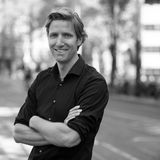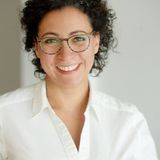In the last couple of months, our streets were empty and our cities quiet. Behind this seeming tranquility, there has been a storm raging through our values and structures. It has given us the space to think about a complete ‘reset’ of the dysfunctional systems in our society. In this series, we showcase the perspectives of a variety of thought leaders who will reflect on our present-day situation. Through the lens of their area of expertise and with an emphasis on the power of design and imagination. The corona crisis is, without a doubt, a crisis that is leaving behind a trail of victims. But which transformations will we be left within the aftermath? In times as these, it is the creatives, philosophers, scientists, makers, and designers who can visualise new scenarios, and develop new insights for our future.
About Marco te Brömmelstroet
 Marco te Brömmelstroet holds the position of Associate Professor in Urban Planning. His teaching focuses on courses around land use and mobility in the Bachelor and Master program. Marco is the founding academic director of the Urban Cycling Institute that is a part of the Centre for Urban Studies. The Institute leads research into the reciprocal relations between cycling, society, and cities and is also actively involved in the international dissemination of Dutch cycling knowledge. Examples of latter are the Summer School on Planning the Cycling City, the MOOC Unraveling the Cycling City, and the Why We Cycle documentary. Last May his book Het recht van de snelste (The law of the fastest) was published, which was co-written with Thalia Verkade, journalist at De Correspondent. Our bicycles, cars and trains are faster and run more efficiently than ever before. This has a huge impact on our villages, cities, and society. What have we lost as a result and how can we organise it differently?
Marco te Brömmelstroet holds the position of Associate Professor in Urban Planning. His teaching focuses on courses around land use and mobility in the Bachelor and Master program. Marco is the founding academic director of the Urban Cycling Institute that is a part of the Centre for Urban Studies. The Institute leads research into the reciprocal relations between cycling, society, and cities and is also actively involved in the international dissemination of Dutch cycling knowledge. Examples of latter are the Summer School on Planning the Cycling City, the MOOC Unraveling the Cycling City, and the Why We Cycle documentary. Last May his book Het recht van de snelste (The law of the fastest) was published, which was co-written with Thalia Verkade, journalist at De Correspondent. Our bicycles, cars and trains are faster and run more efficiently than ever before. This has a huge impact on our villages, cities, and society. What have we lost as a result and how can we organise it differently?
About Rebecca Karbaumer
Rebecca Karbaumer is sustainable mobility coordinator in the city of Bremen and works for the German ministry for Climate Protection, Environment, Mobility, Urban and Housing Development. In 2014 the citizens of Bremen approved a new mobility plan for the city in 2025, with a car-free inner city, a reduction of parking pressure and a new public transport strategy. Rebecca coordinates the car-sharing action plan; the incorporation of car-sharing into new housing developments and extensive public awareness work. With car sharing the city aims to reduce the parking space that’s needed and regaining public space for citizens, pedestrians, and cyclists.

De Correspondent - Steekt een hert de weg over of rijden wij dwars door zijn bos heen? Hoe kan het dat we op een knopje moeten drukken als we de straat over willen steken? En waarom reizen we steeds sneller, maar komen we geen seconde eerder thuis? >>

How Researchers Changed The World - This podcast focuses on Marco te Brömmelstroet’s 2017 research paper: ‘Travelling together alone and alone together: mobility and potential exposure to diversity’. The paper explores how different transportation methods impact our social relationships and feeling of ‘connectedness’ with our community and the environment. The podcast also mentions ‘Why We Cycle’, a documentary co-produced by Marco. >>









